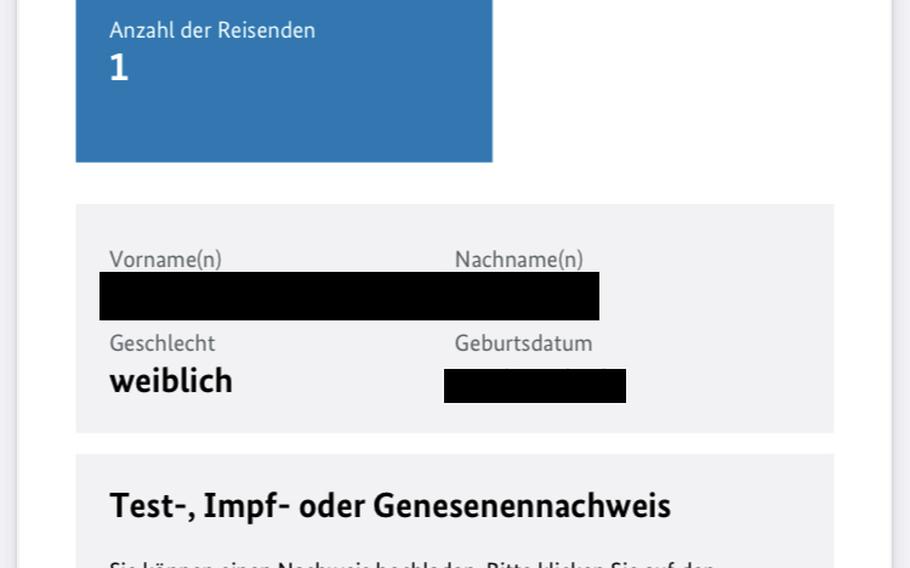
Travelers head to departure gates at Denver International Airport in Colorado on June 6, 2021. Germany removed the U.S. from its list of coronavirus risk countries on June 11, 2021, paving the way for American tourists to return to the country more than a year after they were barred entry amid soaring coronavirus infections in the U.S. (Karin Zeitvogel/Stars and Stripes)
KAISERSLAUTERN, Germany — The U.S. has been dropped from the list of countries Germany considers risk areas for the coronavirus, paving the way for American tourists to be allowed back into the country in time for the summer travel season.
Germany’s disease prevention agency, the Robert Koch Institute, made the announcement Friday when it published an updated coronavirus risk evaluation for countries around the world.
The U.S. and 13 other countries were taken off the list, while regions in five other countries were removed as coronavirus numbers fell.
Passengers arriving in Germany by air still have to complete a digital entry form before arrival and upload either a negative test result, proof that they are fully vaccinated against the coronavirus or that they have recovered from COVID-19 and been cleared for travel by a medical professional, RKI said on its website.
Travelers from the U.S. who fulfill those requirements no longer have to quarantine on arrival in Germany, the health ministry told Stars and Stripes last month.

All air travelers arriving in Germany have to fill in a digital form and attach negative test results, proof that they are fully vaccinated or have recovered from COVID-19 and are allowed to travel. Fully vaccinated travelers and those who have recovered, including from the U.S., which is no longer considered a risk area for the coronavirus by the German authorities, do not have to quarantine on arrival. (Karin Zeitvogel/Stars and Stripes)
The “risk” categorization is the lowest health threat level in RKI’s ranking system. Countries where variants of the virus are circulating, such as the United Kingdom, are ranked at the highest risk level under the German system, and countries with high incidence of the virus are in a tier in between.
Removal from the list means Americans may once again be able to travel to the Continent for tourism after they were barred from entering most EU countries, including Germany, for more than a year as coronavirus infections soared in the U.S.
Germany has not officially announced that U.S. tourists will be able to enter the country now that U.S. infection levels have fallen to around 30 new weekly cases per 100,000 people, but German media reports have suggested that such a move will happen.
“Guests from overseas could once again be welcomed at Neuschwanstein Castle, under the Brandenburg Gate and at the Obersee near Berchtesgaden, all beloved destinations of Americans,” the Sueddeutsche Zeitung reported Wednesday, when the U.S. State Department lowered the warning level for Americans traveling to Germany.
Prior to Wednesday, the State Department warned Americans not to travel to Germany — even though its weekly incidence rate for new cases was lower than that in the U.S., at 18 new infections per 100,000 people as of Friday.
The German border police did not respond to an email inquiry as to when American tourists arriving by air will be allowed to enter the country.
Members of the large American military communities, mostly in the south of the country, are in Germany under the Status of Forces Agreement, which gives them resident status and calls for them to be given the same travel rights within the EU as citizens of the 27 nations in the bloc.
EU leaders were expected to agree Friday to allow people who are fully vaccinated against the coronavirus to travel freely within the bloc this summer, Euronews reported.
Stars and Stripes reporter Marcus Kloeckner contributed to this report.
Twitter: @StripesZeit